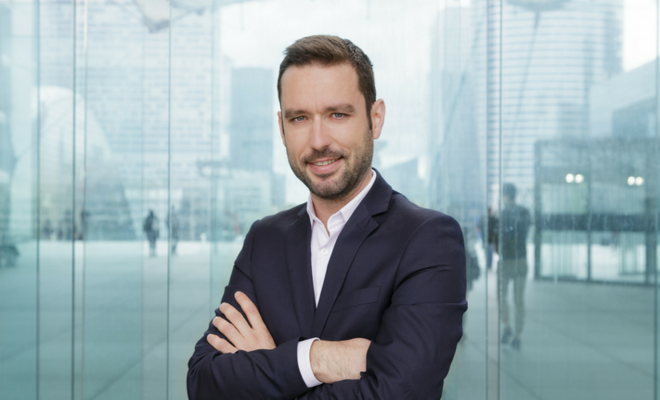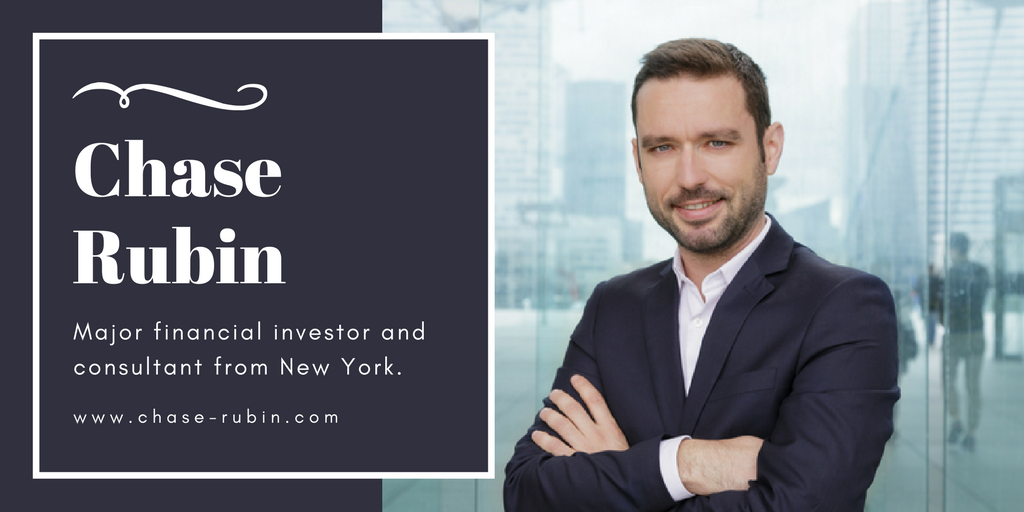
Featured
SkillPatron’s Exclusive Interview with Chase Rubin – Major Financial Investor and Consultant from New York
When I was in my 20s, I earned some nice return on a couple of investments. Sadly, however, I did not think about reinvesting that money and I just spent it somewhat mindlessly. In retrospect, there were many better ways I could have used the capital.

Chase Rubin is a financial investor and consultant from New York. During the last two decades of his career, he has built a portfolio that contains anything from stocks of smaller companies that just went public to large bonds that were issued by various governments. Due to the diversity of his investments, Chase Rubin is able to enjoy a low overall risk when it comes to his capital. Thus, he spends a lot of his time working with other people who seek advice. That approach enables him to get out of his office and meet potential clients instead of spending countless hours analyzing the charts and trends that forecast how certain investments will do. Additionally, Chase Rubin has spent many years working to build himself up as he paid for all of his tuition expenses and never relied on outside help.
Do you consider yourself a low, moderate, or aggressive investor when it comes to risk?
Right now, I would be somewhere in the middle. I have investments in companies that many consider very risky and I have other shares within Blue Chip businesses. Just to be clear, Blue Chips would be all enterprises that are known to pay out dividends to shareholders regularly and are generally very low in risk. When I was younger, I was opened to investing in uncertain things because I knew that there is time for me to get my money back. Now, however, I am in my mid-40s and the amount of money I use has increased while the time for me to get it back has decreased. Thus, I slowly switched to being a more risk-averse individual over the years.
Do you think technology is changing the stock market for the better or worse?
Definitely for the better. I just heard about this new app that lets you buy and sell stocks right from your phone. That is almost unimaginable since I know of days when we had to wait for purchase certificates and good brokers to let us buy things. Presently, everything is just a swipe away and that is one of the best things that technology has achieved.
Is there anyone that you look up to?
Warren Buffet. Even though I am aware that his type of success is a once-in-a-lifetime achievement, I have always been amazed by some of the methods that he still uses. To avoid going into too much detail, those interested can look into some of the books that he wrote.
What was the most recent purchase you made?
I bought shares in a technology company from California called Nvidia. They have been exponentially growing over the last few years and I wanted to get in on the action. To be fair, I am a few months late since many investors already made a fortune here. Nonetheless, better late than never, right?
How often do you sell and buy new investments nowadays?
There is really no timeframe that I follow. When I buy something, I do it because the investment seems like it will grow in the future. If I decide to sell it, on the other hand, that is because the market is showing me that the opportunity has reached its peak.
Is there a certain type of clients that you prefer working with?
Not necessarily. I have people who reach out to me to help them with retirement planning and low-risk opportunities that will give them small returns. I also work with many beginners who want everything and they want it now. Although they usually cannot get this type of return, I do my best to accommodate their high-risk preferences. Overall, I do not discriminate against any type of investor since I can usually find ways to help most of them.
What advice do you have for younger professionals?
To avoid making common mistakes that relate to spending money that they do not have. When I was in my 20s, I earned some nice return on a couple of investments. Sadly, however, I did not think about reinvesting that money and I just spent it somewhat mindlessly. In retrospect, there were many better ways I could have used the capital.
How old does someone need to be to start planning for retirement?
Well, do they have income? If so, they are old enough. It does not matter if someone is 16 or 56, they are in the right age to start thinking about retirement the moment that they get a job. Actually, the party who has 56 is probably a little too late to do proper planning. Bottom line, people can start putting money in a low-yield savings account as soon as they begin receiving paychecks. Overlooking retirement funding is one of the worst mistakes one can make.

